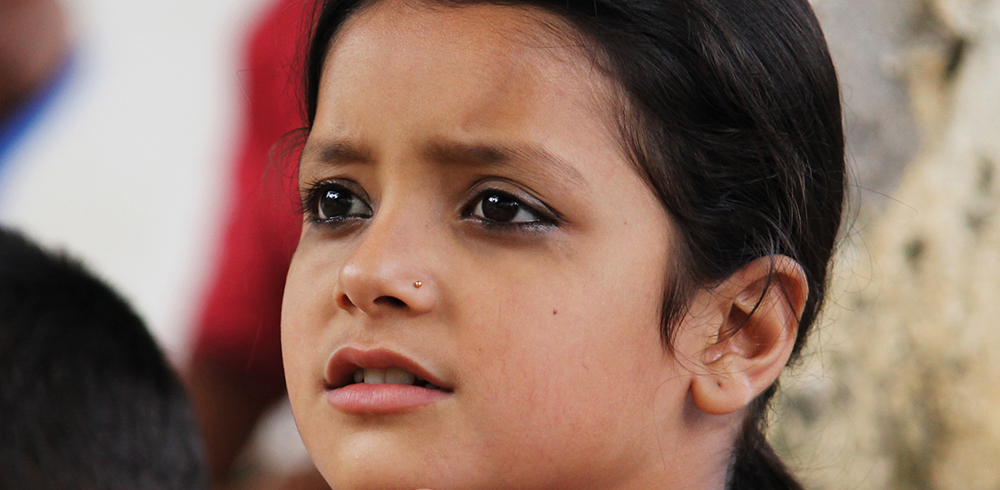
Viva’s partner network in Nepal is working to protect and rescue children from trafficking and sexual abuse. The aims of this programme are for:
- Children to be protected from trafficking and sexual exploitation.
- Children to stay with families and be protected from the harm of living in the street.
- Children to learn and stay in school.
- Family income and budgeting to be improved.
- Churches to learn to protect children and implement child protection mechanisms.
The programme has four main methods to achieve this
1. Awareness-raising, training, advocacy and family counselling
Two key resources, the ‘Daughter Toolkit’ and Sani Film have been developed to help communities understand the problem of child trafficking and sexual exploitation and how to protect their children. The Daughter Toolkit is a simple, picture-based resource that teaches people how to prevent trafficking in their communities and how to intervene once they recognise that abuse or exploitation is taking place. The Sani film is a depiction of a typical trafficking story in Nepal, with Nepali actors, context, language and music. It shows how families can easily be tricked and manipulated and how the trafficked victim is exploited with all the trafficker’s promises broken. This greatly impacts viewers as they are aware of recruiters coming for years and taking children from their villages, most had believed the lie that the children had gone on to a better life.
Sharing these resources has been highly successful and CarNet Nepal plans to launch awareness raising campaigns in villages of two source target regions, Nuwakot and Sundupulchuk.
Church volunteers are providing family counselling in families’ homes and teach parents about child protection and how to protect their children from trafficking and sexual exploitation whilst community leaders are trained and equipped to prevent and/or intervene in situations of child abuse and trafficking.
2. Education – Child Development Centres
Faith-based organisations, local government and schools work with families to identify children at risk of sexual exploitation, trafficking and/or living on the streets and enrol them in a Child Development Centre (CDC). The CDCs support children in their education, social skills and hygiene so that communicable diseases are reduced. The children are also taught about the benefits of education and prepared for school reintegration. When children are ready to return to school, they children are provided with school uniform, stationery, books and admission fees.
These Centres are carefully selected based on criteria such as, the workers should be graduates of Viva’s Celebrating Children course; the centre should have good management, good facilities and be within 1km radius of the target households and be able to accommodate 25 to 30 children.
Volunteers visit each family to explain the programme and ensure that they continue to be supportive and understand the needs of the child and trained workers provide mentoring visits once a month.
3. Women Empowerment – Business training and micro-loans
Empowering women economically helps families to send their children to school. Women whose husbands are alcoholics with no alternative income sources apart from household work are often targeted by traffickers. These women have been prioritised to receive business training in small groups of 10-15 women and be given loans to start a small business.
These women also become advocates for child protection in their communities and have a substantial impact. Some women who are selected for follow-up training are also trained in comprehensive anti-human trafficking training to review and improve their role as Child Protection Advocates.
4. Child Friendly Churches
The sustainability of this programmes depends on the strength of the local churches that support them. These churches are essential pillars of the Child Protection mechanisms in the villages. We train churches in Child Friendly Church, Child Protection, Quality Improvement Steps for churches, and Why Families Matter.
If you would like to find out more about anti-trafficking work or to read our latest programme reports, we would love to hear from you. Please contact us on (+44) 1865 811 660 or info@viva.org
If you would like to give to this work, click here and choose the option ‘Making Child Trafficking History’.
